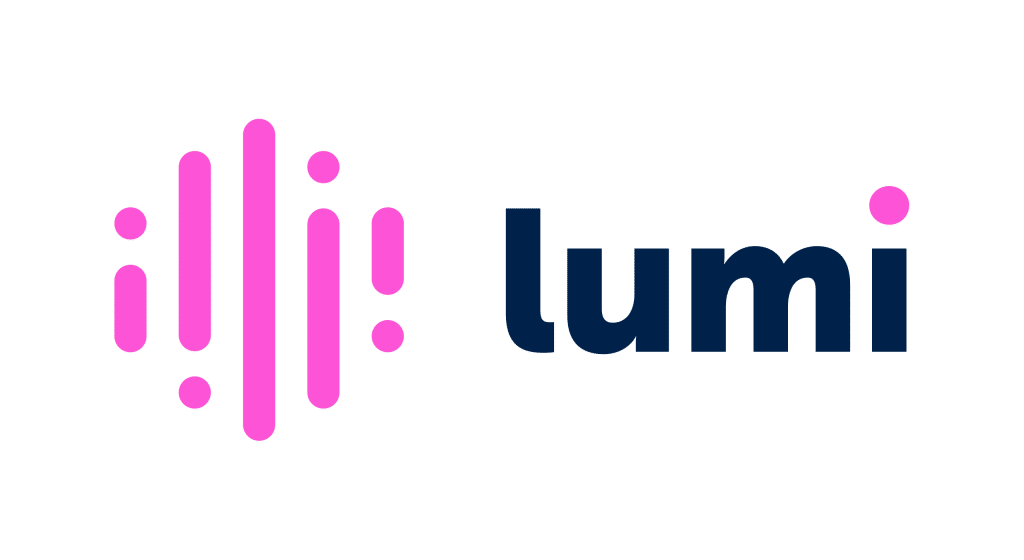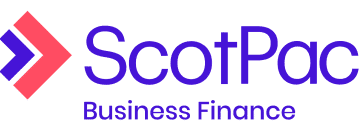Home > Business Loans > Secured Business Loans
Secured Business Loans
Learn more about your options for secured business finance in Australia and compare offers all in one place with Savvy.
Author
Savvy Editorial TeamFact checked








The features and benefits of secured business loans
Get approved for up to $500,000
By opting for secured financing, you’ll be able to access larger loans from $100,000 up to $500,000, making them useful for more substantial investments you may not otherwise be able to afford.
Lower interest rates
Because of the asset you’re supplying as security, your loan will be considered a lesser risk to the lender and thus lead to a lower interest rate than an unsecured loan.
Repay over up to three years
You get to decide on the loan term that suits your needs, with periods up to three years enabling you to choose a length of time which facilitates manageable repayments.
Pre-approval without credit check available
If you’re applying for a secured loan under $250,000, you can access pre-approval without needing a credit check to take place, giving you an indication of the loan amount you might receive.
Flexible asset security
There are a range of different assets that can be used as security for your loan, with the most common being property and vehicles, equipment and balance sheets sometimes being accepted.
Use the funds how you like
There’s essentially no limit to the ways that you can utilise your funds, with the purchase of equipment, addition to cashflow, covering employee wages and expanding your premises all options.
24/7 access
Because our lenders operate 100% online, you can apply at any time of day or night and be safe in the knowledge that the funds you need will be waiting for you when your lender assesses your application.
Individualised rates
Each applicant is different, so you’ll receive an interest rate offer on your business loan that’s tailored to your business’ situation, rather than a one-size-fits-all approach.
Secured business loans explained
What are secured business loans?
A secured business loan is a type of business loan where the business has offered some security (also called collateral) on the loan. Collateral is a term for an asset, owned by the business, which has been made available to the bank as insurance against risk. The idea is that if something goes wrong with the loan (such as the business hitting financial difficulties and being unable to make loan payments) and the bank stands to lose money, it can sell the asset to recoup any loss. This very rarely happens of course; not only will this never be a threat should you be able to promptly and regularly make repayments, lenders would much rather help you get back on track with repayments than sell assets anyway.
Many different assets can be used as collateral. It’s very common for a property to be used (often the property from which the business operates), but vehicles and significant pieces of business equipment can also be an option. The main thing is that it needs to be valuable – the value of the asset if it was sold needs to make up a significant portion, if not the entirety, of the loan amount.
Secured loans can be much larger and more long-term than other types of business finance, as there’s a good backup plan in place if anything goes wrong for the lender. Depending on the business, the lender and the asset, some lenders can offer secured loans of well over $10,000,000 to paid off over the course of up to ten years. However, it's important to compare your options to ensure you apply for the best loan available to you and your business.
What are the advantages of secured loans?
There are several factors that make secured loans an attractive option for a business finance. First and foremost, a secured loan will generally offer the best interest rates you can get on a business loan in Australia. Offering collateral decreases the risk for the lender and improves their confidence, which means lenders are able to offer much better terms and cheaper overall loans.
Secured loans can also involve much larger amounts than other types of loan. The exact amount offered will always depend on your business and the lender in question, but while most lenders have a maximum amount for unsecured loans around $200,000 to $300,000, lenders will offer secured loans with considerably higher amounts. A small business shouldn’t count on getting a secured loan that large, of course, but you’ll still be able to borrow much more with collateral than without.
The loan term can also be a lot longer – sometimes in excess of ten years. That gives you the chance to take advantage of the low interest rate by paying a large amount off over a long time. This makes secured loans a good choice to finance large scale business projects such as a significant upgrade of your facilities, or opening an entirely new branch.
Types of business loan
The most common type of business finance, unsecured loans enable businesses to access the funds they need without attaching an asset to the loan as security. Some lenders may allow you to borrow up to $500,000 and, because there's no collateral, offer same-day approval.
If your business already owns valuable assets, such as property or expensive equipment, you may choose a secured business loan instead. These loans may increase your borrowing power beyond what an unsecured loan can offer and, crucially, typically come with lower interest rates.
Business loans don't always have to be worth hundreds of thousands. If you're operating a small business and need a boost to help you keep on top of your expenses or expand your company, you may be able to take out a loan starting from as little as $5,000 and unlock further capital.
Just because you don't have all the required documents for a standard business loan doesn't mean you're out of options. Low doc finance enables you to use alternative documentation, such as other business financials, in the application process to access the funds you need.
A commercial line of credit allows you to draw from your loan account whenever your business needs access to their funds, instead of managing a lump sum and repaying it like a regular loan. This can add flexibility to your finance arrangement, providing money when you need it.
Invoice finance presents another option to business operators looking to free up cash through outstanding invoices yet to be paid by their customers. Your invoice finance can either be invoice discounting or factoring, which present different options when it comes to your invoices.
A common reason for seeking out a loan is to purchase commercial equipment. You can do this either with an unsecured arrangement or one with the equipment itself as collateral, with the latter potentially increasing your borrowing power and lowering your interest rate.
With this finance, when your business purchases product, your supplier provides an invoice which you send to your financier and pledge to repay by a set date. From there, your supplier sells the invoice to your financier at a discounted rate, while you repay the full amount to your financier.
Under an inventory finance agreement, your lender pays your supplier directly for inventory, which allows it to be signed off and sent to you. From there, you can pay off your debt within a pre-determined period to your lender, which may be longer than the regular debtor period.
An overdraft facility is attached to an existing financial account belonging to your business, such as a transaction or savings account, and enables you to borrow up to a set limit after the account’s balance reaches zero. These overdrafts are repaid with interest, but only on what you use.
You may simply be in a position where your business needs a boost to its cash flow. If this is the case, there’s a range of stop-gap solutions which may be suitable for your situation, from standard unsecured loans to specialist cash flow loans, invoice finance or even an overdraft.
Why compare business loans through Savvy?
100% free service
It won't cost you a cent to compare a range of business loans through Savvy, enabling you to come back at any time.
Reputable lending partners
You can compare business loan offers through a range of trusted Australian lenders, giving you more confidence in the process.
Online comparison process
You can fill out our simple online form to generate business finance quotes tailored to your business' needs in minutes.
Top tips for what to consider when choosing a secured loan
It requires an asset
Not every business has a significant asset to offer, which means many smaller businesses might not have the option of a secured loan, instead having to choose an unsecured small business loan. While it’s technically a possibility to offer a private residence as collateral on a business loan, many operators are uncomfortable with putting their home or personal property at risk.
It has a longer application process
Depending on the lender, secured loans can be quite slow to get approved; some larger lenders can take six to eight weeks to process a secured loan application. This is not universal though, and some lenders – most notably online lenders – can offer faster turnaround times, as quick as inside a matter of days.
You could (in theory) lose the asset
In an ideal world, secured business loans would always get repaid without a hitch, but the reality is that offering an asset as collateral comes with a very small risk of losing the asset. This is always a last resort for the lender though – they’re not going to sell your property after the first missed payment. It’s very rare that collateral is actually sold off.
It can have long-term, ongoing repayments
A secured loan is often a long-term investment. While it can offer very useful finances, you need to think through the impact of making repayments on a loan for many years to come. The upside is that with the lower interest rates offered on a secured loan, that can sometimes be a better prospect than a number of shorter-term business loans.
It impacts your control of your asset
When an asset becomes collateral, you don’t have complete control of it anymore. While you still get to keep it on your premises and use it for your business, you can’t do much to change it, as that might change its value to the lender. You also can’t sell or replace it. That limits your options for switching or renovating your business premises, and upgrading equipment or vehicles offered as collateral.
Frequently asked questions about secured business loans
It can be harder than other types of loan. Lenders are normally very careful with secured loan applications and some require more time and paperwork before they’ll grant approval; they need to make sure everything is in order with your business and the asset is acceptable collateral.
Secured loans aren’t a common choice for start-up businesses, which generally don’t have many usable assets to do so. If you were in a position to get a secured loan for a start-up business (perhaps with an excellent credit score and an existing business property to offer), it could be a very good option. However, this won’t be the case for the majority of start-up businesses.
No – lenders might want or accept a deposit on the loan, but few will require one. Some business lenders might charge a small fee of a few hundred dollars for setting up a secured loan, but again, many don’t.
Yes – business equipment doesn’t need to be brand new to be collateral. Most lenders are only interested in the ongoing market value of the asset rather than how new it is. Lenders can have guidelines that mean the value of second-hand equipment is assessed slightly differently, but that won’t prevent you using it for loan security.
Yes – with most commercial loans (secured or not), it’s possible to make early repayments. However, some lenders will charge extra fees for this, so it’s always worth knowing what you’ll be charged for doing so and whether you still end up better off.
Yes – your credit rating will have an impact on the final interest rate you get offered for a loan, meaning that you shouldn’t expect great rates on a secured loan if your business has a bad credit score. Conversely, a secured business loan for a business with excellent credit can potentially offer some of the best interest rates on the Australian loan market.
No – regardless of whether you’re seeking out finance in Sydney or applying for a loan in Perth, we’re partnered with lenders who can approve applications 100% online, meaning you can access the finance your business needs no matter where you’re based. Because these lenders operate almost entirely in the online space (if not entirely), they’re easily accessible for a wider range of business operators.
Still looking for the right finance for your business?
Explore a range of business loan options suitable to your financing needs and apply online through Savvy today.
